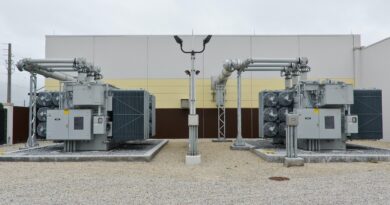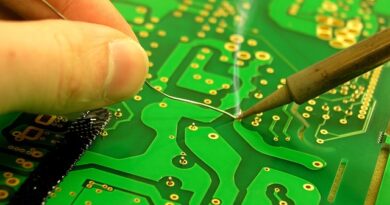The Essential Guide to Commercial Electrical Safety Inspections
Protecting Your Business: The Essential Guide to Commercial Electrical Safety Inspections
Introduction
Running a successful business involves various responsibilities, and one crucial aspect is ensuring the safety and well-being of your employees, customers, and assets. When it comes to electrical safety, commercial electrical safety inspections are essential. In this blog post, we will provide you with an essential guide to understanding the importance of commercial electrical safety inspections and how they can protect your business.
Why Are Commercial Electrical Safety Inspections Important?
Compliance with Safety Regulations
Commercial electrical safety inspections ensure that your business meets the necessary safety regulations and codes set by local authorities. Compliance is crucial to prevent accidents, legal issues, fines, and potential business disruptions. By adhering to safety standards, you demonstrate your commitment to the well-being of your employees and customers.
Identification of Electrical Hazards
Electrical hazards in commercial settings can pose significant risks, including electrical fires, equipment malfunctions, and employee injuries. Electrical safety inspections help identify potential hazards such as faulty wiring, overloaded circuits, improper grounding, outdated equipment, or inadequate electrical capacity. Identifying these hazards early allows for prompt remediation to minimize risks.
Preventing Business Disruptions
Electrical failures or accidents can lead to business disruptions, costly repairs, and downtime. By conducting regular commercial electrical safety inspections, you can identify and address issues proactively, reducing the likelihood of unexpected electrical failures that could disrupt your operations. This helps ensure uninterrupted productivity and customer satisfaction.
Protection against Property Damage
Electrical faults can result in property damage, including damage to equipment, inventory, and infrastructure. By detecting potential issues during inspections, you can prevent electrical malfunctions that could lead to costly repairs or replacements. Protecting your property safeguards your investments and helps maintain business continuity.
The Commercial Electrical Safety Inspection Process
Commercial electrical safety inspections typically involve the following steps:
Hiring a Qualified Electrical Inspector
Engage a qualified and licensed electrical inspector experienced in commercial settings. Their expertise ensures a comprehensive evaluation of your electrical system and adherence to safety standards.
Assessment of Electrical Components
The electrical inspector will evaluate various components of your electrical system, including wiring, panels, switches, outlets, lighting, grounding, and emergency systems. They will check for signs of wear, damage, proper installation, and compliance with regulations.
Testing and Measurement
Using specialized equipment, the inspector will perform tests and measurements to assess electrical loads, voltage levels, circuit integrity, and the effectiveness of protective devices like circuit breakers and surge protectors.
Identification of Issues and Hazards
The inspector will identify any electrical issues or hazards discovered during the assessment. These may include overloaded circuits, faulty wiring, inadequate grounding, improper use of extension cords, or outdated equipment. They will provide a detailed report outlining the identified issues and their potential impact on safety.
Recommendations and Corrective Actions
Based on the inspection findings, the inspector will provide recommendations for necessary repairs, replacements, or upgrades. They will prioritize issues based on their severity and advise on the most effective solutions to mitigate risks and ensure compliance.
Ongoing Maintenance and Follow-up
To maintain electrical safety, establish a schedule for regular maintenance checks and follow-ups. These periodic inspections will help ensure that any new issues are addressed promptly, allowing you to maintain a safe and reliable electrical system.
Conclusion
Commercial electrical safety inspections are an integral part of protecting your business, employees, and assets. By ensuring compliance with safety regulations, identifying electrical hazards, preventing disruptions, and safeguarding your property, these inspections contribute to a secure and efficient work environment. Make commercial electrical safety inspections a priority to maintain a safe electrical system, minimize risks, and protect the long-term success of your business.




